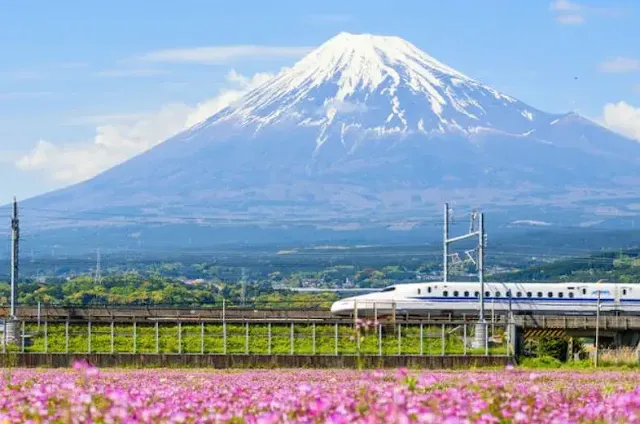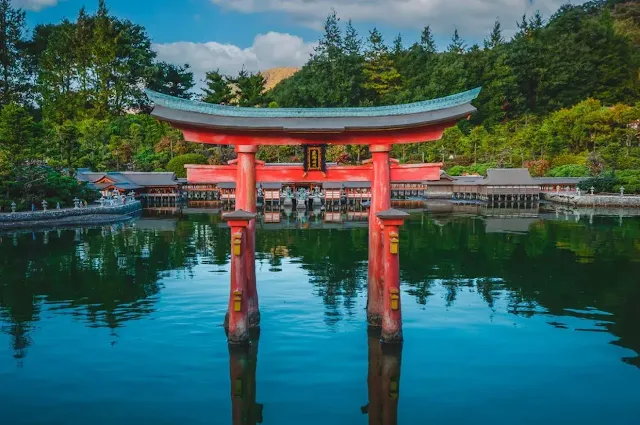Are you ready to embark on a journey to discover the fascinating and mind-blowing facts about Japan? Prepare to be amazed as we delve into the intriguing aspects of this captivating country. From its rich cultural heritage to technological advancements, Japan is a land of wonders that never ceases to impress. Join us as we uncover the hidden gems and unveil the secrets of the Land of the Rising Sun. Stay with Pamoora Travel Blog.
Introduction
Japan, an archipelago in East Asia, is a captivating destination that seamlessly blends tradition and modernity. Renowned for its unique culture, breathtaking landscapes, and technological innovations, Japan has always been a source of fascination for travelers from around the globe. In this article, we will explore the mind-blowing facts about Japan that will leave you in awe of this remarkable country.
Mind-blowing Facts about Japan
Get ready to have your mind blown as we unveil some extraordinary facts about Japan that will leave you speechless.
1. The World's Oldest Company
Did you know that Japan is home to the world's oldest continuously operating company? Nishiyama Onsen Keiunkan, a hot spring hotel located in Yamanashi Prefecture, has been in business for over 1,300 years! This astounding fact highlights Japan's deep-rooted traditions and commitment to preserving its cultural heritage.
2. Unique Vending Machines Culture
When it comes to vending machines, Japan takes it to a whole new level. With over 5 million vending machines across the country, Japan has the highest density of vending machines in the world. But what makes it even more mind-blowing is the wide range of items you can purchase from these machines. From hot meals and fresh eggs to underwear and even live crabs, the possibilities are endless!
3. Island Nation with Volcanoes
Japan is an island nation that sits on the Pacific Ring of Fire, a region known for its seismic activity. This unique geographical position makes Japan prone to volcanic eruptions. In fact, Japan is home to more than 100 active volcanoes, making it one of the most volcanically active countries in the world. Mount Fuji, an iconic symbol of Japan, is also an active volcano and attracts millions of visitors every year.
4. Cherry Blossom Spectacle
One of Japan's most famous natural phenomena is the blooming of cherry blossoms, known as "sakura." Every spring, millions of cherry trees across the country burst into vibrant shades of pink and white, creating a breathtaking spectacle. This fleeting beauty symbolizes the transient nature of life in Japanese culture and attracts both locals and tourists who gather to celebrate and appreciate the delicate beauty of these blossoms.
5. Bullet Trains: A Marvel of Engineering
Japan is renowned for its efficient and reliable transportation system, and the Shinkansen, commonly known as the bullet train, is the epitome of this excellence. The bullet train network in Japan is one of the most advanced and extensive in the world, connecting major cities at staggering speeds. With trains reaching speeds of up to 320 kilometers per hour (200 miles per hour), the bullet train is a true marvel of engineering that showcases Japan's commitment to innovation and efficiency.
6. Capsule Hotels: Compact Accommodation
When it comes to unique accommodation options, Japan never fails to amaze. Enter the world of capsule hotels, a concept that originated in Japan. These compact accommodations consist of small, individual sleeping pods stacked together, providing a cozy and affordable lodging experience. While they may not be suitable for claustrophobic individuals, capsule hotels offer a convenient and budget-friendly option for travelers looking to explore Japan without breaking the bank.
Frequently Asked Questions (FAQs)
Q: What is the significance of the Land of the Rising Sun nickname for Japan?
- A: The nickname "Land of the Rising Sun" refers to Japan's geographical location to the east of the Asian continent. As the sun rises in the east, Japan, being in that direction, earned this poetic moniker.
Q: What is the traditional clothing of Japan?
- A: The traditional clothing of Japan is called "kimono." Kimonos are elegant, robe-like garments made from silk or other high-quality fabrics. They are often worn on special occasions, festivals, and formal events.
Q: What is the significance of tea ceremonies in Japanese culture?
- A: Tea ceremonies, known as "chado" or "sado," hold great cultural and spiritual significance in Japan. They are a highly ritualized form of serving and consuming tea, emphasizing harmony, respect, and tranquility.
Q: Are geisha still present in modern-day Japan?
- A: Yes, geisha still exist in modern-day Japan, particularly in Kyoto. Geisha are highly skilled entertainers who undergo extensive training in traditional arts such as music, dance, and conversation. They are an integral part of Japan's cultural heritage.
Q: What are the popular traditional Japanese arts and crafts?
- A: Traditional Japanese arts and crafts include origami (the art of paper folding), ikebana (flower arrangement), calligraphy, pottery, and the intricate art of bonsai (miniature tree cultivation).
Q: What are some famous Japanese inventions that have had a global impact?
- A: Japan has given the world numerous groundbreaking inventions, including the Sony Walkman, Nintendo Game Boy, karaoke machines, instant noodles, bullet trains, and advanced robotics such as the Honda ASIMO.
Conclusion
As we wrap up our exploration of the mind-blowing facts about Japan, it's evident that this captivating country has so much to offer. From its ancient traditions to its cutting-edge technology, Japan seamlessly blends the old and the new, creating a unique and enchanting experience for visitors. Whether you're enticed by the mesmerizing cherry blossoms, eager to ride the bullet train, or yearning to immerse yourself in the vibrant culture, Japan never fails to leave a lasting impression. So, pack your bags and get ready to uncover the wonders of the Land of the Rising Sun.


